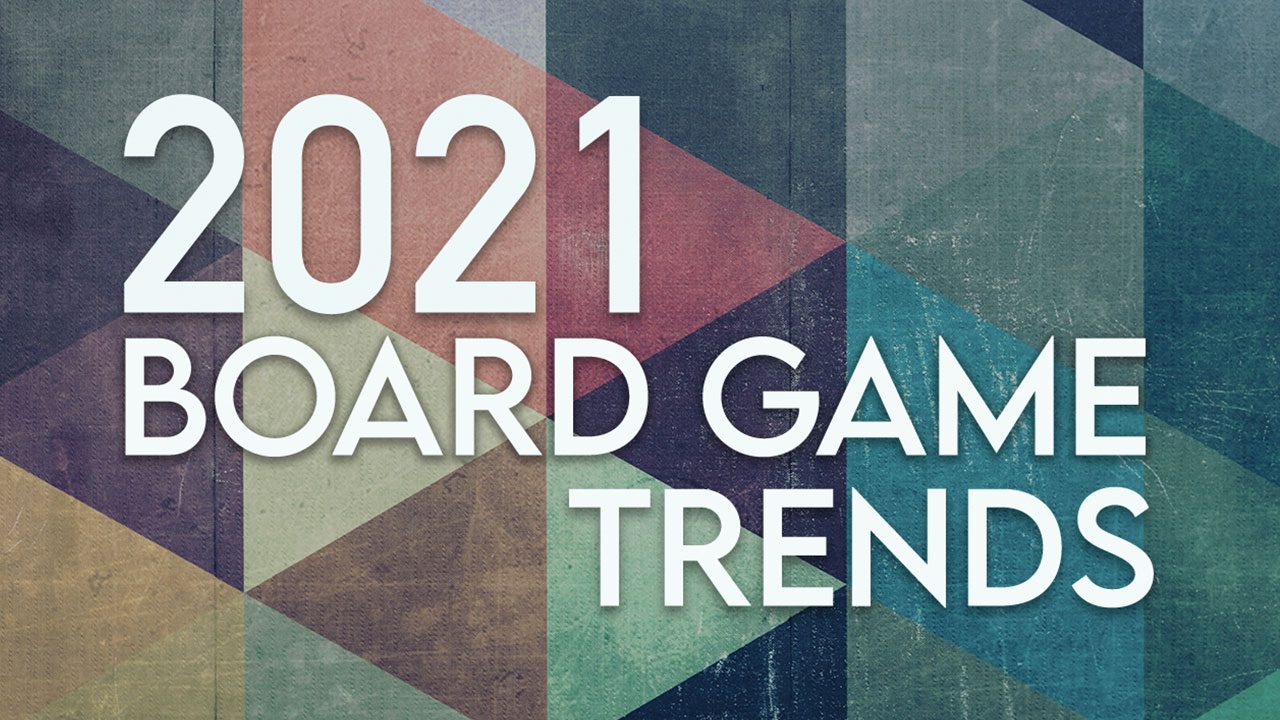2020 was something else. Social distancing due to COVID-19 caused some game groups to go online, cancel the fun, or play through masks. It was also a year of racial reckoning and political chaos.
The funny thing is, this is all pretty well represented in the state of board gaming today when you look at the numbers.
With the exception of Twilight Struggle, all the games in the current top 10 entered this tier within the last 5 years. The volatility in the top 10 may be due to the increase in the number of games being published each year, resulting in more competition.
When Monopoly was released in 1933, less than 100 games came out that year. Now, over 4,000 games are being released every year.
Even with this macro trend, there were nearly 400 fewer games released in 2020 (4,295) compared to the previous year (4,684). This could be explained by a reporting lag, or it could be a COVID-19 dip. Time will tell.
The last time there was a decrease year over year was a decade ago in 2008, which is the year Pandemic was released. Weird context not intended?
Regarding gender and racial representation, we still have a long way to go in the board gaming industry. For instance, in 2020 Analog Game Studies analyzed the rulebooks of the top 40 games on BoardGameGeek. They found 73.8% (1,107) references to “he” and 26.2% (392) references to “she.”
Representation in cover art tells a similar story. In 2018 Analog Game Studies analyzed cover art for the top 100 BoardGameGeek games. Author Tanya Pobuda puts one of the harshest findings this way:
“As a consumer of the Top 100 BGG games, one would be slightly more likely to see an image of an alien or barnyard animal (horses, sheep, birds, dogs) than one would be likely to see board game cover art with a woman.”
Women were underrepresented, but also people of color. You are nearly 6 times more likely to see a white person on the cover of a board game than a non-white person according to this analysis.
In the same study, it was found that among the board game designers of the top 200 board games on BoardGameGeek in 2018, a towering 93.5% were white males.
Obviously there is more work for both our society and the board game industry. May we enter 2021 with the benchmark of the past as context, and our actions as the driving force for more representation in board gaming. Happy new year!









Hello Nathan! You mention, there is a 75 x 25 percent ratio in mentioning the player in the rules as HE. What would be the right way? Should it be 50-50 in the end of the long road to equality? Or even more biased to “SHE”?
How is this ratio among the real players of board games? I do not know, but hypothetically – if that would be let’s say 90 x 10 for male players, isn’t the 75×25 ratio discriminating to men?
Howdy Karl, assuming your question “isn’t the 75×25 ratio discriminating to men” is genuine and you’re not just being a troll, the answer is “no it doesn’t discriminate against men”. Women make up approximately 50% of the world’s population, so anything less doesn’t represent reality, in either direction.
The fact that board gaming skews more heavily men is actually part of the problem that many groups, Meeple Mountain included, are trying to address. Systemic sexism, condescension, and sexual harassment by men against women are rampant, and cause many women to either lose interest in board gaming, or never adopt it to begin with.
If you’re asking with genuine interest, that’s great. Speak out against designers and publishers who only use “he”, or men’s names, in their rulebooks, or only feature male characters. The first time I played Sparkle Kitty I was struck by the fact that there were only women characters to choose from, and I realized “this is what women have been facing in gaming for decades”.
Be part of the solution, and don’t defend or tolerate sexist behavior.
Great response, Andy. I expect we’ll see “they” used more and more in the next ten years. I used to bristle at the sight of a plural term used for singular subjects, but I barely notice it anymore and it’s great to have an inclusive option.
When writing the rules, the author often has to refer to a single player and has to choose a singular. What would you choose to not offend anyone? I hope not “it” 😉
More rulebooks are thankfully adopting the singular “they”, which I also believe is the best common approach as it is the most inclusive. Alternating “he” and “she” still excludes people, so if rulebooks want to alternate for specific examples they should include “they” as well.
The fact that there are still companies using only “he” in 2021 kind of blows my mind. I find it a big turnoff and when reading rules to people I will correct it. My groups usually have people of multiple genders. This has been a big issue for at least the last five years. Get on board, publishers.
Of course is slight trolling, but with genuine intent to discuss the subject, as I am trying to understand your intentions.
I am also huge soccer fan. Is it OK to refer to football players in media and elsewhere as HE and not SHE? Where is the 50-50 reality? Should it be reflected her too?
And to tell the truth I am not offended at all when every media refers to supermodels (or anything where there is a majority of women) as SHE.
Hey Karl,
The goal is to provide equal access to board gaming based on the total population, not to provide access based on the current audience.
The signal I want my daughter to get when reading a rulebook is that she’s accepted and welcome in the hobby, and that it’s not a guy thing. Being bombarded by male pronouns doesn’t do this, so seeing the ratio is a good way to see how we’re currently doing at a macro level.
There are different strategies to do better: You could use non-gendered pronouns such as they, or alternate between he and she when giving examples of play in the rulebook, or just use she if you want to swing that pendulum a little faster.
Hmm, looks like a good idea… But is that true? I have many female friends, and none of them play board games. They are simply not into it… And I doubt, that any single one of them has had read any rulebook.
So the question is – is that about the he / she pronouns?
I have plenty of female friends and none of them play soccer. So that must mean that girls don’t play soccer right?
Given your scenario there’s a few possibilities:
* They genuinely don’t like board games
* They play board games, but not with you
* They like board games, but have been turned off by the lack of representation
* Have you actually asked every single one of your female friends?
And to be honest, who cares if women play board games or not? They’re still 50% of the population, and deserve to be represented, whether they’re involved in that hobby or not. To suggest that we don’t need to use women’s names or female pronouns in books “because they probably don’t play games” is preposterous, wholly uninviting, and compounds the problem. Because if that were the case, then we’d eventually build up a massive list of rulebooks which didn’t reference women, which could then be used to discourage women from playing because women aren’t talked about in rulebooks. And for what it’s worth I know plenty of guys who don’t read rulebooks…that’s a totally different argument altogether.
Representation Matters. Full stop.
I am not saying, that girls do not play soccer, quite the opposite. But the parallel with boardgaming and soccer is that you should probably want to change the soccer perception too, may be the FIFA should write their rules in SHE (as a player) form. Or should they not? I do not know.
In the three scenarios why my (female) friends do not play BG, i am quite sure, the majority of them (~95% ?) do not like them. And beleive me, I try to bring my friend to this hobby (irrelevant to their sex).
Regarding the linked article from Kathleen – she states and supports it with charts, that in BGG TOP 100, there are only 37 covers displaying women. Have you looked at these covers? I did, because I am interested in this subject. And I can say, that (almost) every cover makes sense. There are games/covers with gladiators, knights, star wars soldiers. Is that wrong? Or other question – instead of charts, let’s talk about which covers should display women, which do not atm? I have found may be on of the 100 – Le havre, where there are two workers in shipyard… ok, may be.
Even the waitress on FCM is female. Isn’t that sexist btw? 😉 No it is not, just below that is a male waiter on the Grand Hotel Austria, so that’s fine. And the female hacker on Android Netrunner – I am fine with that, too!
And that there are no women game designers? Is someone blaming men majority in the BG business for this? I am not…
In fact I am toying with a idea to design one little game of mine. Should I do that with female pseudonym? Or should I not? Would that matter..? Where?
Thanks Nathan! this the first of your articles that I have read, I was honestly drawn to it because I saw that you are located in Nashville. Franklin is a great place. I moved between Franklin, Thompson Station and Dickson, for a few years before moving out of state so I am happy to hear that you are from one of the greatest places on earth. Hopefully you like it there.
I found your article very informative. I actually had a discussion with my wife, who loves being involved in board games and design, about how we can help involve more people, especially people with varying life experiences get more involved in this community. After reading this it makes sense that including more variety in our artwork and exhibiting a more realistic representation of people in our language will help with this. What other ideas do you have on how I could help involve a larger variety of people in my board game community?
Hey Jaren! Franklin/Nashville is awesome. It’s a great place to be.
Regarding involving a larger variety of people in your board gaming community, I think the best place to start is doing some self reflection. For instance I default to a guys night board game scenario — and now I’m feeling convicted to think outside of this. If you host a convention or public gaming group, you could do some work and look for interested gamers outside of your current circles, etc. I don’t think there is an easy answer, but I know the best place to start is putting in a little work.
Cheers!
Excellent article — thanks! The trends are interesting to follow, as are some of the arguments for and against the directions many of the trends are taking.
As far as the bulk of the conversation that has followed this article goes, I am all for the singular ‘they.’ I have experimented in the rules I have written with ‘he or she’ or even such constructs as ‘s/he.’ In the end, none of them feel as natural and clear as using the singular ‘they.’
If, however, someone wants to make a point, I would love to purchase a game where, without explanation or pointing it out in any way, all of the pronouns used in the game and rules were feminine.
Pointless article, with some bad intentions to bring gender-feminist war into boardgames zone. Maybe people like boardgames becouse its free from all this gender bulls…
Normally I’d simply delete your comment because it seems like you’re trolling. But I’m in a magnanimous mood so I’ll engage.
> to bring gender-feminist war into boardgames zone
Says the almost certainly white male commenter. I’m a white male too, but I’m “woke” enough to realize that board games were originally made BY white dudes, for white dudes, and almost solely represented white dudes until not too long ago. If you were alive in the 50s and 60s would you have similarly dismissed calls for representation of blacks and other minorities; saying “you have bad intentions to bring [the] racial war into [the] board game zone”?
I’m sick and tired of people complaining about “keep XYZ out of politics”. Here’s a definition of that word people so often toss about.
Note the emphasis on “improving someone’s status or position”. When you’re a minority, EVERYTHING is “politics” because you have less power.
Thanks Nathan! I’m doing a closely related research,and i’m trying to figure out what the trend and future orientation of BG,i attempt to figure out the connection between types, players and the most popular game each year. But i’m having trouble in collating data. I noticed your first chart and may i have your answer where can i find the BBG data in previous years.